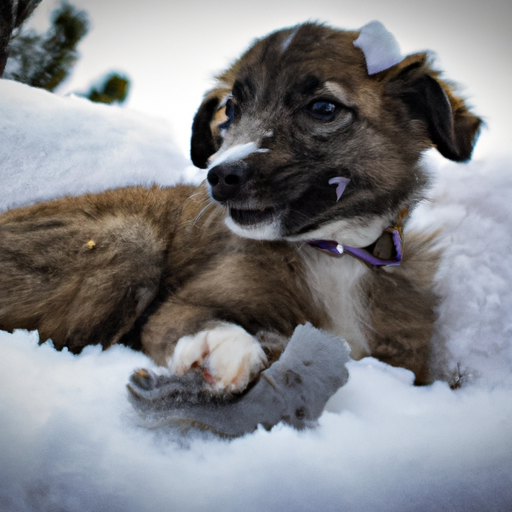Understanding Your Puppy’s Dental Development
Just like humans, puppies are not born with teeth. Their baby teeth, also known as deciduous or milk teeth, start to appear when they are around 2 to 4 weeks old. They have about 28 baby teeth in total. Now, you might be wondering, “At what age do dogs lose these baby teeth?” Don’t fret, beloved caregiver, we’re here to guide you through this natural phase of your furry friend’s development.
When and How Puppies Lose Their Baby Teeth
Puppies typically start losing their baby teeth between 3 and 4 months old. However, this can vary slightly depending on the breed and individual development. It’s a process as natural as the leaves falling in autumn, and it usually happens in this order:
- Incisors – the small teeth at the front of the mouth
- Canines – the long, pointed teeth
- Premolars – the teeth towards the back of the mouth
During this time, you’ll likely notice your puppy chewing more than usual. This is their way of alleviating the discomfort associated with teething, much like a human baby.
What to Expect During This Transition Phase
As your puppy begins to lose its baby teeth, you might notice a few things:
- Increased chewing: This is a natural response to the discomfort of teething.
- Bleeding gums: Don’t panic, a small amount of blood is normal.
- Missing teeth: Baby teeth often fall out while a dog is eating or playing, so you may not always find the lost tooth.
Table 1: Key Signs of Teething in Puppies
| Signs | Description |
|---|---|
| Increased chewing | A natural response to discomfort |
| Bleeding gums | A small amount is normal |
| Missing teeth | Baby teeth often fall out during eating or playing |
How to Support Your Teething Puppy
There are several things you can do to help your puppy during this potentially uncomfortable phase:
- Provide chew toys: These can help to soothe your puppy’s gums and satisfy their urge to chew.
- Use a cold, wet washcloth: Let your pup chew on a damp, frozen washcloth. It’s a simple, homemade solution that can provide relief to those sore gums.
- Monitor for any complications: While losing baby teeth is a natural process, occasionally complications can arise. If you notice excessive bleeding, difficulty eating, or if your puppy appears to be in pain, it’s time to consult your vet.
Frequently Asked Questions
Q: Should I pull out my puppy’s loose baby teeth?
A: No, it’s best to allow the teeth to fall out naturally to avoid causing unnecessary pain or potential damage.
Q: What should I do if my puppy swallowed a baby tooth?
A: Don’t worry, swallowing a baby tooth is generally harmless and it will likely pass through your puppy’s system without issue.
Q: What if my puppy’s adult teeth are growing in before all their baby teeth have fallen out?
A: This is not uncommon, but if you notice adult teeth growing in and the baby teeth are still present, it’s best to consult your vet.
Q: Can teething cause my puppy to lose their appetite?
A: Yes, the discomfort from teething may cause temporary changes in eating habits. If your puppy refuses to eat for more than a day, consult your vet.
Remember, as a caregiver, your attention and support can make this transitional phase a more comfortable experience for your furry friend. After all, a dog’s adult teeth are meant to last a lifetime, and this journey is just the beginning.



